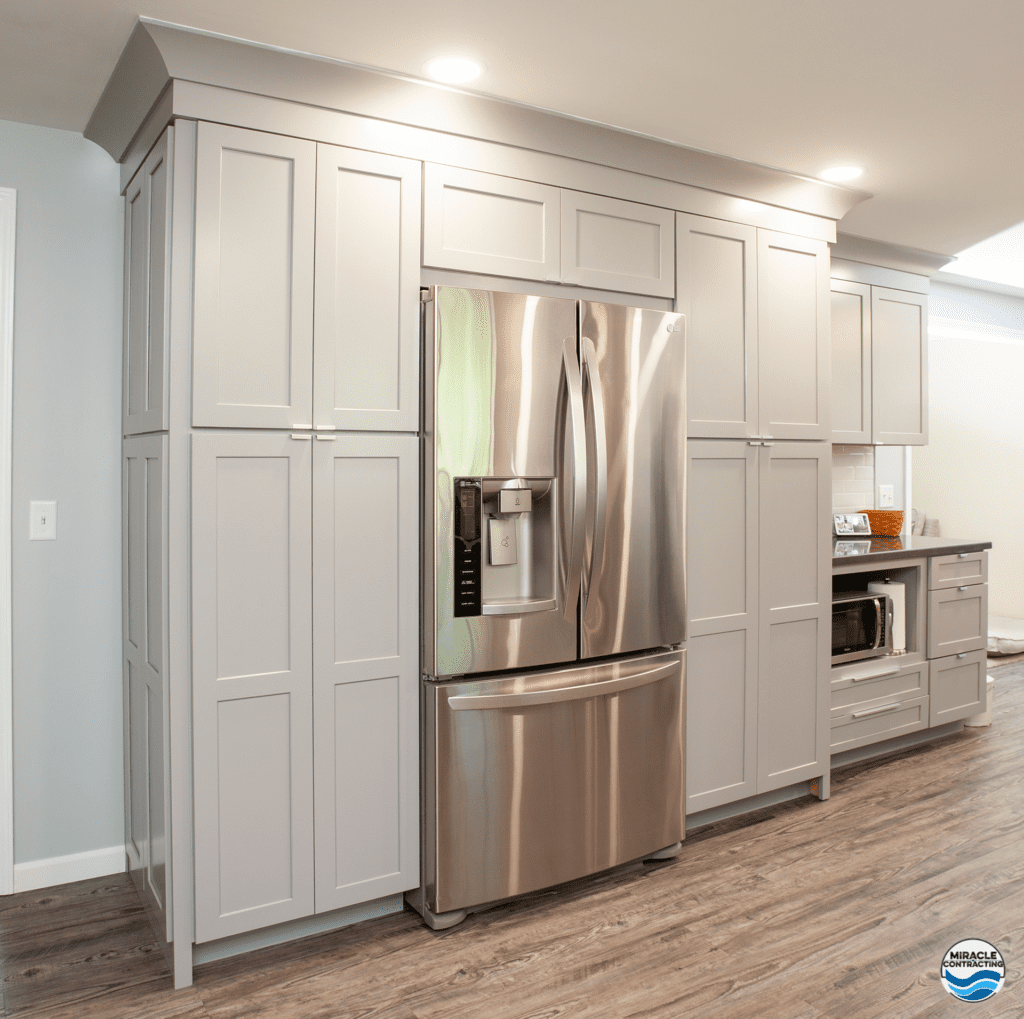
Preparing for Home Renovations and What to Expect
Home renovations, whether large or small, can be both exciting and daunting. The thought of a refreshed space, increased property value, or a home more tailored to your needs is tantalizing. However, as any homeowner who’s embarked on a renovation will tell you, the process can be filled with surprises. Proper preparation and knowing what to expect can make all the difference. In this guide, we’ll walk you through the essentials of planning your home renovation, so you’re equipped with the knowledge to navigate the process smoothly.
The Importance of Planning
Embarking on a home renovation is not a mere aesthetic endeavor. It’s an intricate process that can impact your daily life, finances, and the overall longevity and functionality of your home. Proper planning isn’t just recommended; it’s essential. Here’s why meticulous planning is non-negotiable when it comes to home renovations:
Ensuring Structural Integrity
One of the primary reasons for detailed planning is to ensure that the structural integrity of your home isn’t compromised. It’s not uncommon to hear stories of walls being knocked down without considering the load they bear, leading to potential hazards. Proper planning will include consultations with structural engineers or architects who can guide the renovation safely.
Sticking to a Budget
Without careful planning, costs can quickly spiral out of control. A comprehensive plan involves breaking down every aspect of the renovation and allocating a budget for it. This includes everything from materials to labor. It also aids in preventing impulse decisions that can lead to unnecessary expenditures.
Timely Completion
A clear plan acts as a roadmap for the entire renovation. It sets clear milestones and deadlines for every phase of the project. Without this, projects can drag on indefinitely, causing inconvenience and escalating costs.
Achieving the Desired Outcome
A vision without a plan is just a dream. To transform your vision of a renovated space into reality, detailed planning is paramount. It ensures that every decision made aligns with the desired outcome, preventing post-renovation regrets.
Navigating Legalities and Permissions
Depending on the scope of your renovation and where you live, various permits and legal requirements might be necessary. Planning ensures you’re aware of these requirements ahead of time and can obtain the necessary permissions, avoiding potential legal complications down the road.
Environmentally Conscious Choices
With a push towards sustainability, planning can also help homeowners make eco-friendly choices. Whether it’s choosing sustainable materials, implementing energy-saving solutions, or ensuring waste is minimized and disposed of responsibly, a well-thought-out plan incorporates these elements.
Addressing Future Needs
A renovation isn’t just about the present. It’s an investment in the future. Proper planning helps homeowners think long-term. Whether it’s making provisions for a growing family, future technology integrations, or aging-in-place considerations, a well-planned renovation caters to future needs and scenarios.
Minimizing Disruptions
Renovations can be disruptive to daily life. However, with systematic planning, the impact can be significantly reduced. By scheduling phases logically, setting up temporary solutions, or even timing major work during vacations, homeowners can lessen the inconveniences faced.

While the allure of a renovated space is strong, diving headlong without proper planning can lead to numerous pitfalls. The significance of meticulous planning cannot be overstated. It’s the bridge between your current home and the dream space you envision, ensuring a safe, budget-friendly, and timely transformation. Here are some additional key things to pay attention to when beginning the planning stages of a home renovation:
1. Vision and Scope:
Before diving into a renovation, have a clear vision of what you want the end result to look like. Create a list of “must-haves” and “nice-to-haves.” This will not only guide your decisions but also help in creating a realistic budget.
2. Research:
Spend time researching similar projects. This gives you an idea of current design trends, materials available, and the general price range for the work you’re considering.
3. Professional Consultation:
Even if you’re contemplating a DIY approach, it might be worth consulting with a professional. An architect or interior designer can provide insights that you hadn’t considered, helping you avoid common pitfalls.
Preparing for Disruptions
1. Living Arrangements:
Depending on the scale of the renovation, you might need to consider alternative living arrangements. It could be staying with family, renting a temporary place, or setting up a makeshift living area in a different part of your home.
2. Daily Routine:
Your daily routine might be disrupted. If your kitchen is being renovated, plan for alternative meal options. If it’s the bathroom, ensure there’s another functional one in the house.
3. Protecting Your Belongings:
Cover furniture and belongings to protect them from dust and debris. Consider renting a storage unit for items from the rooms being renovated.
Setting a Realistic Budget
Home renovations can be exhilarating, but without a well-defined budget, they can also lead to financial strain. Understanding the average costs of common renovations and how to efficiently plan your budget can set the stage for a smooth renovation experience. Here’s a guide to assist you in setting a realistic budget:
Average Costs of Common Renovations:
1. Kitchen Remodel:
- Minor remodel: On average, a minor kitchen remodel might cost between $10,000 to $15,000. This can include tasks like painting, upgrading appliances, or adding a new backsplash.
- Major remodel: For a complete overhaul, you might be looking at anywhere from $30,000 to $125,000, depending on the size of your kitchen and the materials chosen.
2. Bathroom Remodel:
- Minor remodel: Basic updates like new fixtures, tile, or a fresh coat of paint can range from $3,000 to $7,000.
- Major remodel: Comprehensive changes, including new plumbing or adding luxury items like a Jacuzzi, can run from $10,000 to $35,000.
3. Basement Finishing: The average cost to finish a basement can range from $20,000 to $50,000. The price varies based on factors like size, materials used, and the addition of any special features like a home theater or a wet bar.
4. Roof Replacement: A new roof typically costs between $5,000 to $30,000, with variations depending on the type of material used and the size and pitch of your roof.
5. Home Additions: Adding new rooms or spaces, such as a sunroom or master suite, can range from $20,000 to $150,000 or more, based on the complexity and scale of the addition.

How to Plan Your Budget:
- Prioritize Your Needs: Determine which renovations are essential and which are ‘nice-to-haves.’ By categorizing this way, you can allocate funds accordingly.
- Get Multiple Quotes: Always get multiple estimates from contractors. This will not only give you a better understanding of market rates but also provide leverage during negotiations.
- Account for Unexpected Costs: Set aside 10-20% of your budget for unforeseen expenses. There’s always a chance that once the renovation starts, hidden issues might arise which can inflate costs.
- DIY vs. Professional: Evaluate which tasks you can handle on your own and which require a professional’s expertise. While DIY can save money, it’s essential to ensure the quality isn’t compromised.
- Research Financing Options: If you’re not paying cash, look into home equity loans, personal loans, or even specific renovation loans that might offer favorable interest rates.
- Stay Updated with Market Prices: Materials and labor costs fluctuate. Stay updated with current prices of materials you’re looking to use. This can also help you take advantage of sales or discounts.
- Review and Reevaluate: As your renovation progresses, continually revisit your budget. Tracking your spending can help you stay on course and make necessary adjustments along the way.
Setting a realistic budget for home renovations requires diligent research, thorough planning, and regular oversight. While average costs can provide a ballpark figure, the exact budget will invariably be influenced by individual preferences, choices, and unforeseen challenges. Nonetheless, with preparation and informed decisions, homeowners can ensure that their renovation not only enhances their living space but also delivers value for every dollar spent.
Get Started With Setting a Budget for Home Renovations
1. Detailed Estimation:
Your budget should account for all aspects of the renovation – labor, materials, permits, and unexpected costs. Always add a contingency fund, ideally 10-20% of the total budget, for unforeseen expenses.
2. Prioritization:
With your list of “must-haves” and “nice-to-haves,” allocate your budget accordingly. This ensures the most critical aspects of your renovation are covered.
3. Get Multiple Quotes:
Before settling on a contractor, get several quotes. This helps in understanding market rates and ensuring you get value for your money.
4. Monitor Expenditures:
Keep a close eye on your expenses as the renovation progresses. This will help you stay on track and make necessary adjustments if unforeseen costs arise.
A home renovation is a journey filled with anticipation and, sometimes, anxiety. By investing time in thorough planning, preparing for the inevitable disruptions, and diligently setting and monitoring your budget, you can greatly reduce the stress associated with such projects. Remember, the key is to anticipate challenges and be flexible in your approach.

Maximizing the Return on Your Investment (ROI)
While determining a budget is a foundational step, homeowners should also understand the potential return on their investment. After all, a well-executed renovation can add significant value to a property.
1. Focus on High-ROI Renovations: Some renovation projects tend to yield a higher return on investment. For example, kitchen and bathroom remodels or adding energy-efficient appliances and fixtures can significantly boost a home’s value.
2. Curb Appeal Matters: First impressions are lasting. Simple exterior improvements like landscaping, fresh paint, or a new front door can drastically enhance a home’s appeal and increase its market value.
3. Quality Over Quantity: It’s better to invest in quality materials and craftsmanship for fewer projects than to spread your budget thin over multiple areas. High-quality renovations tend to age better, require less maintenance, and are more appealing to potential buyers.
4. Functionality is Key: While aesthetic enhancements are essential, functional improvements can significantly boost ROI. For example, adding storage solutions or creating an open floor plan can make a home more appealing.
5. Stay Informed on Trends: Having a grasp on current design and home improvement trends can help guide your renovation choices. However, it’s equally important to balance trendy choices with timeless designs to ensure your renovations have lasting appeal.
6. Local Market Awareness: Understand the preferences and needs of buyers in your local market. A renovation that’s in high demand in one region might not hold the same appeal in another.
7. Professional Consultation: Consider consulting with a real estate professional or interior designer. Their expertise can provide insights into the best renovations for your home type and location, ensuring you get the most bang for your buck.
Renovating a home is both an investment in your living space and in your property’s overall value. By focusing on both the budgeting aspect and the potential ROI of your projects, homeowners can make informed decisions that benefit them in the present and future. While home renovations focus on improving and customizing your living space, there are always external factors, like pests, that can hamper these improvements. If ever in need of ensuring a pest-free environment as you maximize your living space, remember we’re here to provide reliable quotes and expert services.
While ensuring your home’s aesthetics and functionality, don’t forget the importance of maintaining a safe environment. If you ever need assistance in keeping your space pest-free during or after renovations, we’re here to help. Reach out to us for reliable quotes and expert pest control services to ensure a comfortable living environment.


Leave a Reply